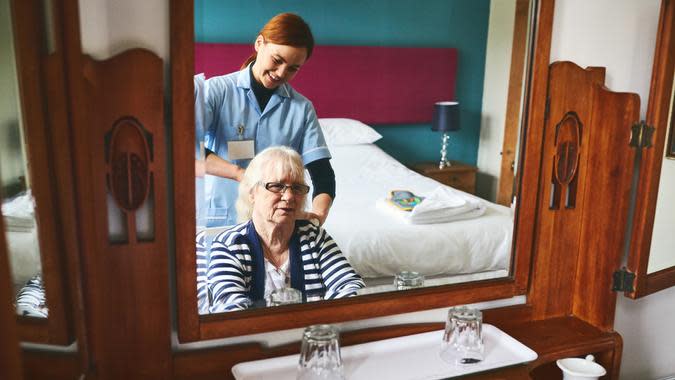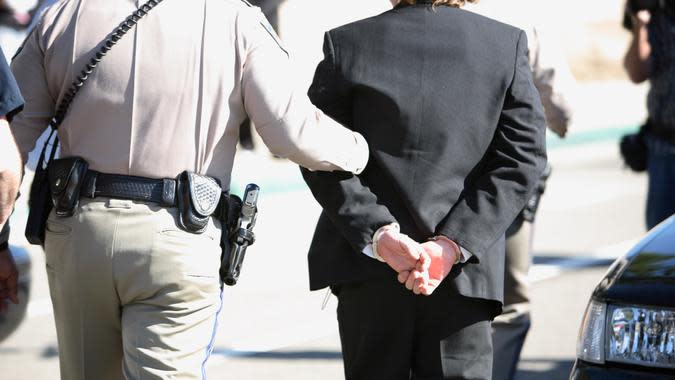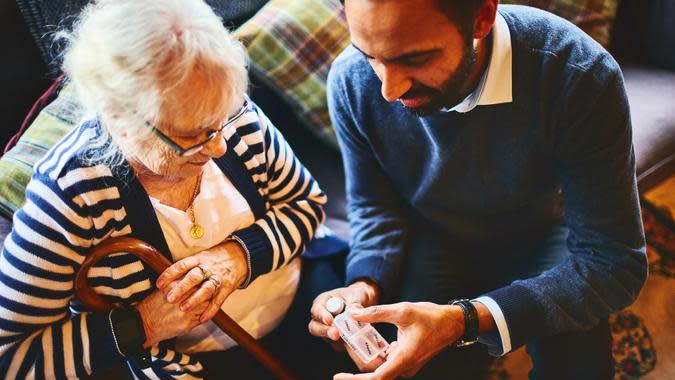This Medicare Scam Stole Over $1 Billion From Our Pockets

The National Health Care Anti-Fraud Association estimates that tens of billions of dollars per year are lost to healthcare fraud, including Medicare fraud. Many of these losses can be attributed to the fact that Medicare is required to pay medical claims quickly. As a result, claims are often paid long before they can be flagged for potential fraud, which means that these monetary losses can easily occur.
Retirement Savings: Experts Say This Magic Number Is the Key -- and It's Not $1 Million
See: How To Get Cash Back on Your Everyday Purchases
But this type of healthcare fraud isn't a victimless crime. Instead, it often preys upon the disabled and elderly, making them unwitting victims of large criminal schemes. Read on to learn about one recent scam that caused over $1.2 billion in Medicare losses.

About the Scam Targeting the Elderly
The scam was based on durable medical equipment (DME) companies paying illegal kickbacks and bribes in exchange for referrals of Medicare beneficiaries. Authorities describe this scam, which involved telemedicine, as one of the largest healthcare frauds they've ever investigated. The scam targeted hundreds of thousands of elderly or disabled patients and involved call centers in other countries.
Jaspreet Singh on the 75/15/10 Rule: This Is How the 1% Manage Their Wealth
I'm a Financial Advisor Who Works With Wealthy Families: These Are the Best Ways To Transfer Wealth

How Medical Professionals and Others Took Advantage Of Patients
Medical professionals, DME companies and others worked together to take advantage of unsuspecting disabled and elderly Medicare beneficiaries. First, telemarketing companies would contact the victims offering them free or low-cost orthopedic braces for conditions such as back, shoulder, wrist or knee ailments.
Medicare recipients would be transferred to fraudulent call centers in the Philippines and Latin America to have their Medicare coverage verified. Then, the beneficiaries would be transferred to telemedicine companies for brief doctor consultations.
Following the consultations, doctors would sign prescriptions for orthopedic braces -- even if patients didn't need them. Sometimes, doctors signed several orders for braces for the same patient.
The call centers were responsible for collecting the prescriptions and selling them to DME companies involved in the scam. The DME companies would then ship the braces to the patients and bill Medicare fraudulently.
How To Create a Budget Using ChatGPT: A Step-by-Step Guide

This Scam Has Cost at Least $1.2 Billion
You might wonder how $1.2 billion in losses could be accumulated when only 24 individuals were indicted. The 24 individuals indicted in the scam submitted or assisted in submitting various false claims to Medicare that often totaled up to millions over several years.
To give an idea of the type of money involved, the U.S. Department of Justice officials reported that DME companies would receive $500 to $900 for each brace from Medicare, which they could use to pay kickbacks totaling almost $300 per brace.

What Defendants Were Doing With the Money
The money gained from the scam was allegedly laundered through various international shell corporations. The money was used by the defendants to purchase items such as high-end real estate, foreign cars and yachts in the U.S. and other countries, according to the DOJ.

How the Scam Was Discovered
Information about the scam surfaced in the summer of 2018 when beneficiaries started calling the Medicare fraud hotline to complain about their experiences. Based on these complaints, federal agents launched an investigation, exposing the giant healthcare fraud scheme. This led to 80 search warrants in 17 federal districts.

Arrests Made in This Medicare Scam
Charges were filed against the 24 defendants as a result of the investigation, which was led by both the FBI and the U.S. Department of Health and Human Services Office of the Inspector General. Defendants included three medical professionals, dozens of owners of DME companies and employees of five telemedicine companies, including top-ranking executives.
I'm a Financial Advisor: Here's How to Equally Divide an Inheritance Among Heirs

How To Protect Yourself From Healthcare Scams
Unfortunately, this isn't the first and most certainly won't be the last healthcare scam carried out in the U.S. That's why it's important to protect yourself from this and other types of scams. Here are some tips to help you -- or someone you love -- avoid being a victim.

Tip No. 1: Be Wary of Free Offers
Rarely is anything ever free. There's often a catch -- and sometimes that catch is becoming the victim of a scam. Make it a rule not to entertain or accept gifts or cash payments in exchange for free medical care. If you do, you're setting yourself up for disaster.

Tip No. 2: Watch For Language That Points To Fraud
Sometimes, a medical provider may prescribe a service or item but will tell you it usually isn't covered by Medicare. If the provider says things such as they know how to get Medicare to pay for the item or they'll take care of getting Medicare to cover the cost, be wary of accepting because it could be fraud.

Tip No. 3: Know That Medicare and Medicaid Don't Send Sales Reps to Your Home
Avoid purchasing or accepting free products and services from door-to-door sales reps who claim they are from Medicare or Medicaid because it's always a scam. Medicare and Medicaid never send representatives to people's homes to try to sell items and services.
I'm a Millionaire: Why I'm Not Passing Generational Wealth to My Kids

Tip No. 4: Keep Track of Billing
Make a note of all the items and services you receive from Medicare. Then, when you receive your Medicare statements, inspect them thoroughly to see if your notes match the details on the statement. If you see items or services listed that you didn't receive, contact Medicare immediately to find out why.

Tip No. 5: Guard Your Medicare Card Carefully
Your Medicare card and number are valuable. If they fall into the wrong hands, they could be used to commit fraud. Keep this information in a safe place and never provide it to anyone except your doctor or someone who you are positive should have the information, such as insurers.
More From GOBankingRates
This article originally appeared on GOBankingRates.com: This Medicare Scam Stole Over $1 Billion From Our Pockets
